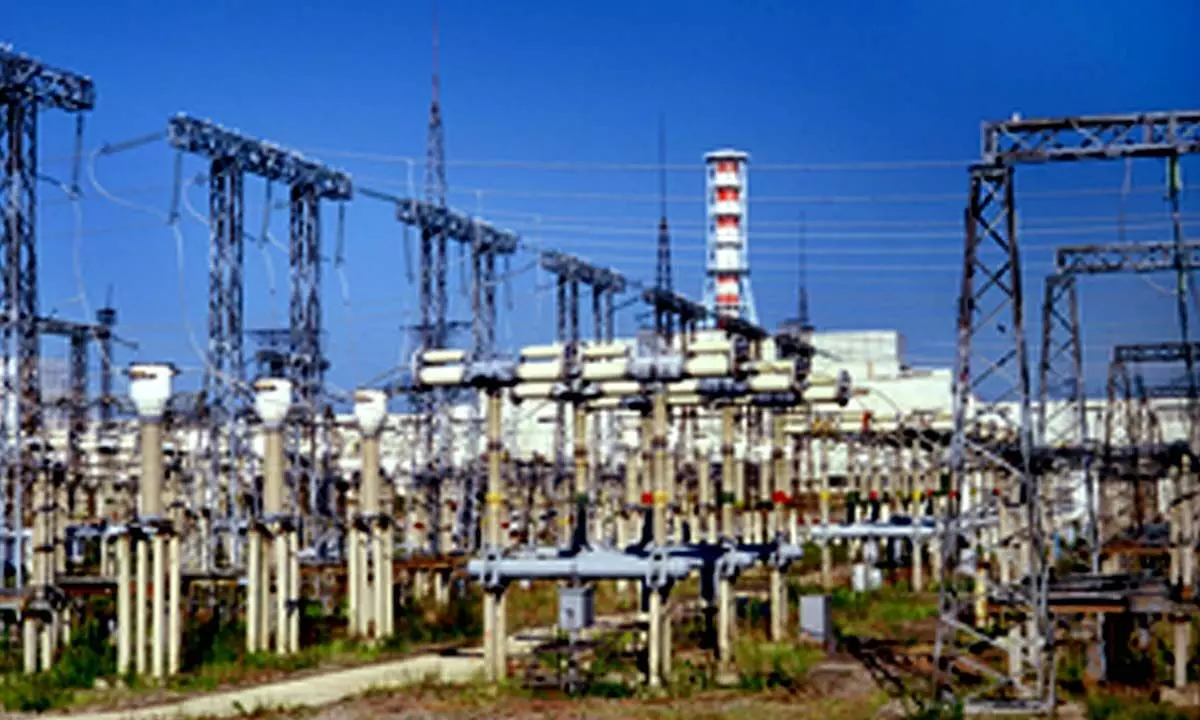Live
- Fieo charts strategy to push exports to US
- AP to receive rains today and tomorrow amid severe low pressure
- Job scam: No High Court bail for Partha
- Joint teams from AP, TG destroy illicit liquor
- Refusing medical aid to sexual, acid attack survivors an offence
- TTD Parakamani Theft Case: Fresh row as board member seeks probe
- People struggling with rising prices: Rahul
- Santa cap on Annamayya statue sparks tension
- Speed up Bhogapuram airport works: CS to officials
- Demand up for Amit Shah’s dismissal
Just In
Power capacity from non-fossil fuels to touch 65% by 2030: Minister

Minister for Power and New & Renewable Energy R. K. Singh said on Friday that India is adding renewable energy capacity
New Delhi: Minister for Power and New & Renewable Energy R. K. Singh said on Friday that India is adding renewable energy capacity at a pace that is one of the fastest in the world and is likely to increase its power capacity from non-fossil fuels to 65 per cent by 2030.
The minister observed that India has emerged as a country which is at the forefront of energy transition.
“We had pledged that we will have 40 per cent of our capacity from non-fossil-fuels by 2030, and today, we have 44% of our capacity from non-fossil-fuel sources. We have now upped our target and while we have pledged to have 50 per cent of our capacity from non-fossil-fuel sources by 2030, but we shall have 65 per cent of our capacity from non-fossil-sources by 2030,” Singh said at a media event in the national capital.
He said that the country has already set up 187 GW of renewable capacity.
The minister informed the industry that the total investments made in the power sector in the last nine years is about Rs 17 lakh crores, and the capacity under construction entails an investment of another Rs 17.5 lakh crores.
“We have about 99 GW of renewable energy capacity under construction and around 32 GW of renewables under bidding stage. We shall be bidding around 40 – 50 GW of renewable capacity every year.
“In thermal capacity, we have about 27 GW under construction, we have bid out additional 12 GW, 21 GW more under survey and investigation and a further 22 GW under initial stages. We have 47 GW of hydro capacity installed, 18 GW under construction and 13 GW under various stages of survey and investigation,” Singh pointed out.
Speaking about the rising power demand, the Minister informed that in 2014, the peak demand was around 130 GW while today it is in the region of 243 GW.
“By 2030, the peak electricity demand is likely to cross 400 GW, indicating the fast growth of the economy. The demand grew at 9 per cent last year, and is growing at 10 per cent this year.
“On a daily basis, the demand is 8 GW – 10 GW more than the same day previous year. There is no other market as big and growing as fast as us,” he added.
Singh said that the nation will add enough capacity to meet this burgeoning demand. “We will cross 500 GW of renewable capacity by 2030. We already have 7 million tonnes of green hydrogen manufacturing lined up.”
He pointed out that India is the most competitive in renewable energy since the cost of renewable energy is the cheapest in the world, despite subsidies and protectionist measures being adopted by some countries.
“We are adding energy storage capacity too. We have about 35 GW of Pumped Storage Projects capacity lined up. We are constructing battery storage capacity as well, though it is expensive at present. Unless we have volumes, the price will not come down,” he added.
The Minister said that the government is coming out with a Production Linked Incentive Scheme for grid-scale storage which will further bring down the price of storage.
“Due to interventions such as custom duties on solar modules and cells as well as Approved List of Models and Manufacturers, the net result has been that the capacity of module manufacturing has gone up from about 20 GW to about 50 GW now; by 2030, we will have about 24 GW of polysilicon to module manufacturing capacity.”

© 2024 Hyderabad Media House Limited/The Hans India. All rights reserved. Powered by hocalwire.com






